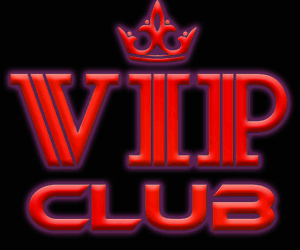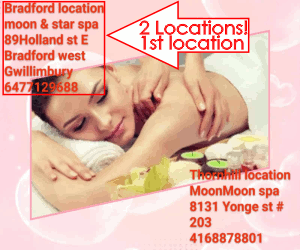- Lulu_Villa_Spa:
Jessica Pretty Girl with amazing personality and super easy to get along with. Sasa friendly Vietnamese Judy is a gorgeous model type Vietnamese Girl Sami Vietnamese Girl Cherry
 From Malaysia Part time School girl
From Malaysia Part time School girl  647- 446-0886
647- 446-0886 - Double_Tree:

 4271 Sheppard Avenue east
4271 Sheppard Avenue east 
 ❣Friday,
❣Friday, 
 Sofia, tall and slim, experienced touch that will have you relaxed
Sofia, tall and slim, experienced touch that will have you relaxed 
 Mary,❣ tall and slender woman. Dark hair to shoulder. Sensual touch with a great finish +.
Mary,❣ tall and slender woman. Dark hair to shoulder. Sensual touch with a great finish +. 

 416 293-5071
416 293-5071
- DareDevil:
Blackpink Wellness

 90 Marycroft Ave. Unit #2, Vaughan,
90 Marycroft Ave. Unit #2, Vaughan, 
 ON L4L 5Y1 (647) 395-3188. BEAUTIFUL AND SEXY GIRLS TODAY:
ON L4L 5Y1 (647) 395-3188. BEAUTIFUL AND SEXY GIRLS TODAY:  Superstar Julie, Sexy Akino and Beautiful Tiffany on duty
Superstar Julie, Sexy Akino and Beautiful Tiffany on duty .
. - DareDevil:
ARIA WELLNESS

 ADDRESS: 360 HWY 7, UNIT #6, RICHMOND HILL
ADDRESS: 360 HWY 7, UNIT #6, RICHMOND HILL
 ,647-222-5683 (PHONES CALL ONLY, NO TEXT'N AVAILABLE)
,647-222-5683 (PHONES CALL ONLY, NO TEXT'N AVAILABLE)  TODAY'S Schedule!
TODAY'S Schedule! Loaded lineup with Young Beautiful Girls : Ellagant Ella, Magical Mia and Work out🏋
Loaded lineup with Young Beautiful Girls : Ellagant Ella, Magical Mia and Work out🏋
 Babe Amy! BUY 10 HOURS (GET 11 HOURS) **TODAY'S PICK OF THE DAY ARE
Babe Amy! BUY 10 HOURS (GET 11 HOURS) **TODAY'S PICK OF THE DAY ARE
 Ella
Ella

- EMSpa_schedule:
Tomorrow's sneak peek: On Friday May 9, 2025, our attendants will be Vicky
 , Ada
, Ada  , Carla ❤, Cici
, Carla ❤, Cici  and Opal
and Opal  . Call us at
. Call us at  (905) 479-6668
(905) 479-6668 to book!
to book! - wilson holistic centre:
new girl works at
 535 Evans Ave today
535 Evans Ave today 



 416-531-6969
416-531-6969

- Lilyspa1:
Lily Spa :

 SuSu ( Asian )Slim ,
SuSu ( Asian )Slim , 
 Porn Service
Porn Service 
 Elena 22, Latino French, 36 DDD and
Elena 22, Latino French, 36 DDD and 
 ASS,
ASS, 
 Vicky 22, Philippine mixed White , very open-Minded ,
Vicky 22, Philippine mixed White , very open-Minded ,  bbbj , DFk
bbbj , DFk  Duo
Duo  ,
, 6475318288
6475318288 - EMSpa_schedule:
Hey! Where have you been? Today (Thursday), our amazing attendants are Ada
 , Cici
, Cici  , Vicky
, Vicky  , Sophie
, Sophie  and Monica
and Monica  . Call us at
. Call us at  (905) 479-6668
(905) 479-6668  to book your favourite and head on over to 7665 Kennedy Road, Unit 4, Markham!
to book your favourite and head on over to 7665 Kennedy Road, Unit 4, Markham! - SL East Spa:
 ♀
♀ Terrific Thursday
Terrific Thursday  Ultimate destination for Asian massages
Ultimate destination for Asian massages Two fab spots: SL Richmond Hill & SL West Oakville
Two fab spots: SL Richmond Hill & SL West Oakville  Your passport to paradise with 10 enchanting girls fr China, HK —
Your passport to paradise with 10 enchanting girls fr China, HK —  Tiffany, Joey, Julie, Aaliyah, Cici, Coco, Yui, Meghan, Julia & New 34D Jasmine—— ready to pamper you
Tiffany, Joey, Julie, Aaliyah, Cici, Coco, Yui, Meghan, Julia & New 34D Jasmine—— ready to pamper you
 Ring us
Ring us  647-695-6354 or text us
647-695-6354 or text us  647-578-8169
647-578-8169 160 East Beaver Cr., Unit 12, RichmondHill
160 East Beaver Cr., Unit 12, RichmondHill  Where Eastern charm meets Western comfort - your bliss awaits
Where Eastern charm meets Western comfort - your bliss awaits - Nu spring spa888:


 sexy hot busty
sexy hot busty  Indian
Indian 
 korean girls
korean girls
 working
working 
 at markham
at markham  416-669-8508
416-669-8508


- Lulu1980:
Phoenix Blossom Spa


 Table shower body scrub Sea Salt Bath
Table shower body scrub Sea Salt Bath every day 3 girls
every day 3 girls 

 5124 Dundas St W Etobicoke
5124 Dundas St W Etobicoke 416-817-3366
416-817-3366 Nice girl Mia
Nice girl Mia  Natural Big Boobs 36 DD
Natural Big Boobs 36 DD  Pink Mini Nipples Hot body slide, super enjoyable
Pink Mini Nipples Hot body slide, super enjoyable


 very provocative service
very provocative service

 , professional super Luna deep tissue massage, back walking has therapeutic effect to loosen bones and relieve muscle pressure and will bring you unexpected service effects, she will b
, professional super Luna deep tissue massage, back walking has therapeutic effect to loosen bones and relieve muscle pressure and will bring you unexpected service effects, she will b - Jenny’s Spa:

 JENNY’S SPA
JENNY’S SPA

 5170 DUNDAS STREET WEST
5170 DUNDAS STREET WEST
 ETOBICOKE ONTARIO M9A 1C4
ETOBICOKE ONTARIO M9A 1C4
 ( 647-893-5196)
( 647-893-5196) Call or Text
Call or Text  ( 437-888-3759)
( 437-888-3759) Call Only (ETOBICOKE) OPEN 10am to 9pm MONDAY to SUNDAY
Call Only (ETOBICOKE) OPEN 10am to 9pm MONDAY to SUNDAY 
 GRAND OPENING
GRAND OPENING NEW GIRLS EVERYDAY
NEW GIRLS EVERYDAY EXCELLENT MASSAGE + SERVICE QUEENS NOW AVAILABLE AT JENNY’S SPA FOR ALL YOUR MASSAGE AND SPECIAL EXTRA NEEDS
EXCELLENT MASSAGE + SERVICE QUEENS NOW AVAILABLE AT JENNY’S SPA FOR ALL YOUR MASSAGE AND SPECIAL EXTRA NEEDS





 TWO BEAUTIFUL NEW YOUNG ASIAN GIRLS EVERYDAY
TWO BEAUTIFUL NEW YOUNG ASIAN GIRLS EVERYDAY
 REAL PICTURES OF ATTENDANTS
REAL PICTURES OF ATTENDANTS

 Limited Time Special Promotion
Limited Time Special Promotion


 30 Minutes Nude Mass
30 Minutes Nude Mass - wonderspa:
 welcome to wonder spa
welcome to wonder spa 416-5000-800,L6a4H8,open10 to10.on Thursday ,Ensuit shower available
416-5000-800,L6a4H8,open10 to10.on Thursday ,Ensuit shower available  beautiful Jessica come back,deep tissue to relax massage and nice body slide
beautiful Jessica come back,deep tissue to relax massage and nice body slide sunny very good looking,big breasted sweet sensual touch really popular
sunny very good looking,big breasted sweet sensual touch really popular  long hair young beautiful Lucy,friendly smile,back walk,strong to relax oil amazing ending,relief your stress,must try
long hair young beautiful Lucy,friendly smile,back walk,strong to relax oil amazing ending,relief your stress,must try

- Lilyspa1:
Lily Spa :

 SuSu ( Asian )Slim ,
SuSu ( Asian )Slim , 
 Porn Service
Porn Service 
 Elena 22, Latino French, 36 DDD and
Elena 22, Latino French, 36 DDD and 
 ASS,
ASS, 
 Yuki 24, Korean Slim ,
Yuki 24, Korean Slim ,  bbbj , DFk
bbbj , DFk  Duo
Duo  ,
, 6475318288
6475318288 - wilson holistic centre:
new girl works at
 535 Evans Ave today
535 Evans Ave today 



 416-531-6969
416-531-6969

- AliceSpa:
THURSDAY at 𝗔𝗟𝗜𝗖𝗘 𝗦𝗣𝗔.4915 Steeles Ave. E, Scarborough 𝟰𝟭𝟲-𝟮𝟵𝟴-𝟬𝟴𝟵𝟴. 3 girls here today at ALICE SPA. Open 10am to 9pm: JOJO (12pm-9pm): is a busty JAPANESE girl, magnificent DD Cup boobs, short, petite small body, pretty face AV Star, bbbj cim cof rim, special services available. KITTY (12pm-9pm) is a new Korean girl, super busty, small body, new to the business. Very friendly
- Annie Spa:

 ANNIE SPA
ANNIE SPA

 7-1001 SANDHURST CIRCLE
7-1001 SANDHURST CIRCLE
 SCARBOROUGH ON M1V 1Z6
SCARBOROUGH ON M1V 1Z6
 (647) 891-9688
(647) 891-9688
 (416) 291-8879
(416) 291-8879 (FINCH & MCCOWAN) OPEN 9:30am to 9pm MONDAY to SUNDAY
(FINCH & MCCOWAN) OPEN 9:30am to 9pm MONDAY to SUNDAY 
 NEW MANAGEMENT
NEW MANAGEMENT NEW GIRLS
NEW GIRLS

 GORGEOUS NEW YOUNG ASIAN GIRLS - TODAY’s ROSTER INCLUDES:
GORGEOUS NEW YOUNG ASIAN GIRLS - TODAY’s ROSTER INCLUDES:  Suki
Suki is beautiful short petite tiny sexy student from Cambodia. Exotic features and model looks, Suki has a nice bum, slim waist, flat stomach and very good massage skills and has a great playful personality. Suki has a beaut
is beautiful short petite tiny sexy student from Cambodia. Exotic features and model looks, Suki has a nice bum, slim waist, flat stomach and very good massage skills and has a great playful personality. Suki has a beaut - ForeverWarden:
Thursday at




 𝓕𝓞𝓡𝓔𝓥𝓔𝓡 𝓢𝓟𝓐
𝓕𝓞𝓡𝓔𝓥𝓔𝓡 𝓢𝓟𝓐




 2190 Warden Ave, Unit 201, Scarborough 𝟰𝟭𝟲-𝟴𝟬𝟬-𝟳𝟴𝟴𝟳: Cindy, Sophia & Tracy. Cindy is a slim beauty, 5’4”, natural C Cups. Her massage is nice, her services will drive you wild & her finish is a dream come true. Sophia is a sweet & pretty Chinese lady with natural B Cups and an awe-inspiring smooth rounded ass. Sophia can provide top notch services
2190 Warden Ave, Unit 201, Scarborough 𝟰𝟭𝟲-𝟴𝟬𝟬-𝟳𝟴𝟴𝟳: Cindy, Sophia & Tracy. Cindy is a slim beauty, 5’4”, natural C Cups. Her massage is nice, her services will drive you wild & her finish is a dream come true. Sophia is a sweet & pretty Chinese lady with natural B Cups and an awe-inspiring smooth rounded ass. Sophia can provide top notch services - Moneylee:
All season wellness center: Young girl big boobs beautiful face deep massage Midi,Young girl big boobs beautiful face deep massage Tina ,Young girl big breasted beautiful buttocks charming temperament big boobs Cindy ,Student big boobs buttocks Vicky, Enchanting sexy petite deep massage Sherry ,
 address: #5-30 Rambler dr Brampton ,Ontario L6W 1E2
address: #5-30 Rambler dr Brampton ,Ontario L6W 1E2 4376655510
4376655510 



 ️
️ ️
️

- Moneylee:
Full season wellness center: young girl pretty face nice figure Thai deep massage Vivian , pretty face nice figure Thai deep massage Yuki ,Young girl big breasted beautiful buttocks charming temperament big boobs Anjoo ,Young girl Big breasted saucy naughty Ella,Enchanting sexy petite deep massage Mary. 2560 Shepard ave Mississauga unit 1 .
 4379857899
4379857899

 ️
️ ️
️



- HolidaySpa:
Thursday at


 𝓗𝓸𝓵𝓲𝓭𝓪𝔂 𝓢𝓹𝓪
𝓗𝓸𝓵𝓲𝓭𝓪𝔂 𝓢𝓹𝓪

 3517 Kennedy Rd, Unit 4, Scarborough
3517 Kennedy Rd, Unit 4, Scarborough  𝟰𝟯𝟳-𝟮𝟰𝟳-𝟭𝟭𝟵𝟵
𝟰𝟯𝟳-𝟮𝟰𝟳-𝟭𝟭𝟵𝟵 : ANGELA, LUCY & CINDY. Angela is versatile and responsive. LUCY is a beautiful and slim Asian lady with a happy disposition and great services. CINDY is a slim & incredibly sexy lady with a smile that will melt your heart, & an ass that will fire up your spirit.
: ANGELA, LUCY & CINDY. Angela is versatile and responsive. LUCY is a beautiful and slim Asian lady with a happy disposition and great services. CINDY is a slim & incredibly sexy lady with a smile that will melt your heart, & an ass that will fire up your spirit. - SugarLoveSpa:
Thursday at


 ⎝𝗦𝗨𝗚𝗔𝗥 𝗟𝗢𝗩𝗘 𝗦𝗣𝗔⎠
⎝𝗦𝗨𝗚𝗔𝗥 𝗟𝗢𝗩𝗘 𝗦𝗣𝗔⎠

 : CHRISTINA, MIA, SARA & TIFFANY. 1270 Finch Ave W (at Keele St), Unit 18. North York, ON ☎ 𝟰𝟯𝟳-𝟯𝟲𝟱-𝟮𝟲𝟴𝟴 ☎ CHRISTINA is Spanish, C Cups, 5'3", tall & nice curves, very open minded. MIA is a young & slim 𝙎𝙋𝙄𝙉𝙉𝙀𝙍, very PRETTY & PETITE Vietnamese beauty with perfect natural A Cups, 5’1” & 90 Lbs, very versatile. Come and enjoy.
: CHRISTINA, MIA, SARA & TIFFANY. 1270 Finch Ave W (at Keele St), Unit 18. North York, ON ☎ 𝟰𝟯𝟳-𝟯𝟲𝟱-𝟮𝟲𝟴𝟴 ☎ CHRISTINA is Spanish, C Cups, 5'3", tall & nice curves, very open minded. MIA is a young & slim 𝙎𝙋𝙄𝙉𝙉𝙀𝙍, very PRETTY & PETITE Vietnamese beauty with perfect natural A Cups, 5’1” & 90 Lbs, very versatile. Come and enjoy. - bnwellness_wilson:
We have 4 young girls are working today, young sweet Taiwanese Victoria slime open mind and young flirty Tina with sexy body open mind, sexy Coco and Cute GFE Ella are providing deep tissue massage, pls call 4163985777 book appointment and walk in always welcome,back entrance and parking available, 350 Wilson Ave North York
- Soul Relax Spa:
 Looking for a relaxing escape?
Looking for a relaxing escape?  Click Here Meet
Click Here Meet Luna
Luna Valentina
Valentina KellyCall us today for the best treatment and service experience. Click on our Username and FOLLOW US for updates ! Call now ☎ 289 - 298 - 5662
KellyCall us today for the best treatment and service experience. Click on our Username and FOLLOW US for updates ! Call now ☎ 289 - 298 - 5662 Your ultimate relaxation awaits!
Your ultimate relaxation awaits! 
- Spa in Markham:
- BlueXado Therapy & Spa:
 BlueXado – 1102 Centre St, Thornhill
BlueXado – 1102 Centre St, Thornhill  416-357-9797 | 416-678-8668 Cici
416-357-9797 | 416-678-8668 Cici 
 , Amy
, Amy  (10–12AM), Mika
(10–12AM), Mika  (2PM–12AM)
(2PM–12AM)  Book Now
Book Now - Pink Flower Spa:
 Pink Flower – 3300 McNicoll Ave, Scarborough
Pink Flower – 3300 McNicoll Ave, Scarborough  416-299-5515 | 416-817-3839 Elina
416-299-5515 | 416-817-3839 Elina  , Amira
, Amira  , Mady
, Mady  , Jojo
, Jojo  (10–9PM)
(10–9PM)  Book Now
Book Now - luckywellness:
Lucky Wellness Center 4379721888 295 Eglinton Ave E,Unit 7,Mississauga We had two girls working today. Kiki and Suki, they are short and have a sweet smile. The massage was great and the back massage was great too.
- Lulu_Villa_Spa:
Mia New Vietnamese sweetheart girl with amazing personality Judy is a gorgeous model type Vietnamese Girl Natalie she is CBC/filipina mixed Petite girl
 647- 446-0886
647- 446-0886 - Lulu1980:
Phoenix Blossom Spa


 Table shower body scrub Sea Salt Bath
Table shower body scrub Sea Salt Bath every day 3 girls
every day 3 girls 

 5124 Dundas St W Etobicoke
5124 Dundas St W Etobicoke 416-817-3366
416-817-3366 Nice girl Mia
Nice girl Mia  Natural Big Boobs 36 DD
Natural Big Boobs 36 DD  Pink Mini Nipples Hot body slide, super enjoyable
Pink Mini Nipples Hot body slide, super enjoyable


 very provocative service
very provocative service

 , professional super Luna deep tissue massage, back walking has therapeutic effect to loosen bones and relieve muscle pressure and will bring you unexpected service effects, she will b
, professional super Luna deep tissue massage, back walking has therapeutic effect to loosen bones and relieve muscle pressure and will bring you unexpected service effects, she will b - DareDevil:
Blackpink Wellness

 90 Marycroft Ave. Unit #2, Vaughan,
90 Marycroft Ave. Unit #2, Vaughan, 
 ON L4L 5Y1 (647) 395-3188. BEAUTIFUL AND SEXY GIRLS TODAY:
ON L4L 5Y1 (647) 395-3188. BEAUTIFUL AND SEXY GIRLS TODAY:  Superstar Bobo, Sexy Akino and Beautiful Tiffany on duty
Superstar Bobo, Sexy Akino and Beautiful Tiffany on duty .
. - DareDevil:
ARIA WELLNESS

 ADDRESS: 360 HWY 7, UNIT #6,
ADDRESS: 360 HWY 7, UNIT #6,  RICHMOND HILL,647-222-5683 (PHONES CALL ONLY, NO TEXT'N AVAILABLE)
RICHMOND HILL,647-222-5683 (PHONES CALL ONLY, NO TEXT'N AVAILABLE)  TODAY'S Schedule!
TODAY'S Schedule! Loaded lineup with Beautiful Girls : New Young RMT Student Helen, , New Girl Linda, Magical Mia and Work out🏋
Loaded lineup with Beautiful Girls : New Young RMT Student Helen, , New Girl Linda, Magical Mia and Work out🏋
 Babe Amy! BUY 10 HOURS (GET 11 HOURS) **TODAY'S PICK OF THE DAY IS
Babe Amy! BUY 10 HOURS (GET 11 HOURS) **TODAY'S PICK OF THE DAY IS 
 Helen and LInda
Helen and LInda
 **
** - wonderspa:
wonderspa: .

 Wonder spa,(9421Jane st unit127)call416-5000-800
Wonder spa,(9421Jane st unit127)call416-5000-800 best massage in vaughan,Tuesday RMT available, Today's special recommendation
best massage in vaughan,Tuesday RMT available, Today's special recommendation  sexy very young girl Mimi,natural c cup,very good looking amazing massage nice body slide,really popular
sexy very young girl Mimi,natural c cup,very good looking amazing massage nice body slide,really popular 
 long hair Lucy Q smile,very good strong to relax oil massage,got a lot experience,
long hair Lucy Q smile,very good strong to relax oil massage,got a lot experience, very nice good looking sunny,amazing massage
very nice good looking sunny,amazing massage - EMSpa_schedule:
Tomorrow's sneak peek: On Thursday May 8, 2025, our attendants will be Ada ️, Cici
 , Vicky
, Vicky  , Sophie
, Sophie  and Monica
and Monica  . Call us at
. Call us at  (905) 479-6668
(905) 479-6668 to book!
to book! - wilson holistic centre:

 Beautiful Korean girl working at 382 Wilson Ave
Beautiful Korean girl working at 382 Wilson Ave 


 416-840-0071
416-840-0071

- Fantomas:
DATY
- DareDevil:
ARIA WELLNESS

 ADDRESS: 360 HWY 7, UNIT #6,
ADDRESS: 360 HWY 7, UNIT #6,  RICHMOND HILL,647-222-5683 (PHONES CALL ONLY, NO TEXT'N AVAILABLE)
RICHMOND HILL,647-222-5683 (PHONES CALL ONLY, NO TEXT'N AVAILABLE)  TODAY'S Schedule!
TODAY'S Schedule! Loaded lineup with Beautiful Girls : New Young RMT Student Helen, , New Girl Linda, Magical Mia and Work out🏋
Loaded lineup with Beautiful Girls : New Young RMT Student Helen, , New Girl Linda, Magical Mia and Work out🏋
 Babe Amy! BUY 10 HOURS (GET 11 HOURS) **TODAY'S PICK OF THE DAY IS
Babe Amy! BUY 10 HOURS (GET 11 HOURS) **TODAY'S PICK OF THE DAY IS 
 Helen and LInda
Helen and LInda

- Golden Sunshine Spa:
 Click on our Username and FOLLOW US for updates and special services !
Click on our Username and FOLLOW US for updates and special services !  Click Here Today
Click Here Today Akame
Akame Christina
Christina Xuka
Xuka Lynda
Lynda Vivian Call us ☎ 905 - 265 - 2158
Vivian Call us ☎ 905 - 265 - 2158 Your ultimate service awaits!
Your ultimate service awaits! 
- SL East Spa:
 ♀
♀ WooHoo Wed
WooHoo Wed Ultimate destination for Asian massages
Ultimate destination for Asian massages Two fab spots: Richmond Hill & Oakville
Two fab spots: Richmond Hill & Oakville Your passport to paradise with 9 enchanting girls fr China, HK, Japan & Korea —
Your passport to paradise with 9 enchanting girls fr China, HK, Japan & Korea —  Gigi, Cindy, Coco,Cici, Amber, JPN Yui, Akino, Jasmine & Lucy— ready to pamper you
Gigi, Cindy, Coco,Cici, Amber, JPN Yui, Akino, Jasmine & Lucy— ready to pamper you
 Ring us
Ring us  647-695-6354 or text us
647-695-6354 or text us  647-578-8169
647-578-8169 160 East Beaver Cr., Unit 12, RichmondHill
160 East Beaver Cr., Unit 12, RichmondHill  Where Eastern charm meets Western comfort - your bliss awaits
Where Eastern charm meets Western comfort - your bliss awaits
- SugarLoveSpa:
Hi today have Ella, Susan, Tifany, Nancy come baby Sugar Love spa

 (437) 365-2688
(437) 365-2688

- Lilyspa1:
Lily Spa :

 SuSu ( Asian )Slim ,
SuSu ( Asian )Slim , 
 Porn Service
Porn Service 
 Elena 22, Latino French, 36 DDD and
Elena 22, Latino French, 36 DDD and 
 ASS,
ASS, 
 Yuki 24, Korean Slim ,
Yuki 24, Korean Slim ,  bbbj , DFk
bbbj , DFk  Duo
Duo  ,
, 6475318288
6475318288 - wonderspa:
 Wonder spa,(9421Jane st unit127)call416-5000-800
Wonder spa,(9421Jane st unit127)call416-5000-800 best massage in vaughan,Wednesday RMT available,
best massage in vaughan,Wednesday RMT available, sexy very young girl Joey natural c cup,very good looking nice body slide,really popular
sexy very young girl Joey natural c cup,very good looking nice body slide,really popular  long hair Q Lucy good strong to relax oil massage, Relieve pain and remove stress,more experience,
long hair Q Lucy good strong to relax oil massage, Relieve pain and remove stress,more experience, young beautiful new girl Cici slim body,amazing body slide,Deep massage,nice ending,must try
young beautiful new girl Cici slim body,amazing body slide,Deep massage,nice ending,must try

- Jenny’s Spa:

 JENNY’S SPA
JENNY’S SPA

 5170 DUNDAS STREET WEST
5170 DUNDAS STREET WEST
 ETOBICOKE ONTARIO M9A 1C4
ETOBICOKE ONTARIO M9A 1C4
 ( 647-893-5196)
( 647-893-5196) Call or Text
Call or Text  ( 437-888-3759)
( 437-888-3759) Call Only (ETOBICOKE) OPEN 10am to 9pm MONDAY to SUNDAY
Call Only (ETOBICOKE) OPEN 10am to 9pm MONDAY to SUNDAY 
 GRAND OPENING
GRAND OPENING NEW GIRLS EVERYDAY
NEW GIRLS EVERYDAY EXCELLENT MASSAGE + SERVICE QUEENS NOW AVAILABLE AT JENNY’S SPA FOR ALL YOUR MASSAGE AND SPECIAL EXTRA NEEDS
EXCELLENT MASSAGE + SERVICE QUEENS NOW AVAILABLE AT JENNY’S SPA FOR ALL YOUR MASSAGE AND SPECIAL EXTRA NEEDS





 TWO BEAUTIFUL NEW YOUNG ASIAN GIRLS EVERYDAY
TWO BEAUTIFUL NEW YOUNG ASIAN GIRLS EVERYDAY
 REAL PICTURES OF ATTENDANTS
REAL PICTURES OF ATTENDANTS

 Limited Time Special Promotion
Limited Time Special Promotion


 30 Minutes Nude Mass
30 Minutes Nude Mass - AliceSpa:
WEDNESDAY at 𝗔𝗟𝗜𝗖𝗘 𝗦𝗣𝗔 416-298-0898, 4915 Steeles Ave. E, Scarborough 3 very nice girls here today. Open 10am to 9pm: APPLE: from Hong Kong, very small body, 5' 100Lbs, petite with natural C Cups, small waist, pretty baby face, smooth skin, very clean. Shaved tight Pu**y, strong professional massage. Available FS bbbj cim cof rim. LUCKY (12:30pm-9pm): is Vietnamese, small body, busty D
- Lulu1980:
Phoenix Blossom Spa


 2 girls,Nina 、Cindy
2 girls,Nina 、Cindy 

 5124 Dundas St W Etobicoke
5124 Dundas St W Etobicoke 416-817-3366
416-817-3366 Table Shower Sea Salt Bath Body Scrub
Table Shower Sea Salt Bath Body Scrub Japanese girl Nina
Japanese girl Nina  Natural Big Boobs 38 DD
Natural Big Boobs 38 DD  Pink Mini Nipples Hot body slide, super enjoyable
Pink Mini Nipples Hot body slide, super enjoyable


 very provocative service
very provocative service

 , New girl Yuki Round buttocks
, New girl Yuki Round buttocks  pretty boobs 36D
pretty boobs 36D Superb service
Superb service  massage, has therapeutic effect to loosen bones and relieve muscle pressure and will bring you unexpected service effects, she will bring you a little surprise
massage, has therapeutic effect to loosen bones and relieve muscle pressure and will bring you unexpected service effects, she will bring you a little surprise - wilson holistic centre:

 Beautiful Korean girl working at 382 Wilson Ave
Beautiful Korean girl working at 382 Wilson Ave 


 416-840-0071
416-840-0071

- Nu spring spa888:


 sexy hot Philippine
sexy hot Philippine 
 Malaysia
Malaysia 
 Korean girls
Korean girls  working at Nu spring spa
working at Nu spring spa 416-669-8508
416-669-8508


- ForeverWarden:
Wednesday at




 𝓕𝓞𝓡𝓔𝓥𝓔𝓡 𝓢𝓟𝓐
𝓕𝓞𝓡𝓔𝓥𝓔𝓡 𝓢𝓟𝓐



 2190 Warden Ave, Unit 201, Scarborough 𝟰𝟭𝟲-𝟴𝟬𝟬-𝟳𝟴𝟴𝟳: Bella, Cindy & Sasa. Bella is around 5’3” with a thin to medium build, C Cups, and a pleasing personality. She can offer dfk, bbbj and cfs as well as a good massage experience. Cindy is a slim beauty, 5’4”, natural C Cups. Her massage is nice, her services will drive you wild & her finish is a dream
2190 Warden Ave, Unit 201, Scarborough 𝟰𝟭𝟲-𝟴𝟬𝟬-𝟳𝟴𝟴𝟳: Bella, Cindy & Sasa. Bella is around 5’3” with a thin to medium build, C Cups, and a pleasing personality. She can offer dfk, bbbj and cfs as well as a good massage experience. Cindy is a slim beauty, 5’4”, natural C Cups. Her massage is nice, her services will drive you wild & her finish is a dream - Moneylee:
Full season wellness center: Young girl Big-breasted big big butts Aris , Young girl big breasted beautiful buttocks charming temperament big boobs Rose,Young girl big breasted beautiful buttocks charming temperament big boobs Julia ,Young beautiful face sexy body and good deep massage maggie,Enchanting sexy petite deep massage Mary.
 2560 Shepard ave Mississauga unit 1
2560 Shepard ave Mississauga unit 1  4379857899
4379857899 





 ️
️ ️
️ - Moneylee:
All season wellness center : New Young girl big boobs beautiful face deep massage Zoe ,young girl pretty face nice figure Thai deep massage Helen,Young girl big breasted beautiful buttocks charming temperament summer ,Young girl Big breasted saucy naughty Ella , Enchanting sexy petite deep massage Sherry ,address: #5-30 Rambler dr Brampton ,Ontario L6W 1E2
 4376655510
4376655510 

 ️
️ ️
️



Similar threads
- Ava Agoranos, Lancaster Eagle-Gazette
- Spa news and reviews
- Madi Marks
- Spa news and reviews
- Lauren Allain
- Spa news and reviews
- Brent Solomon
- Spa news and reviews


























































































